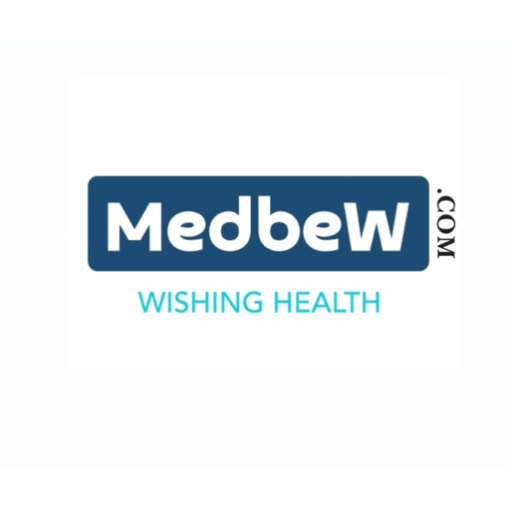Composition Tranexamic Acid (500mg)
Rx Prescription Required
Pack strip of 10 tablets
Storage Store below 30°C
Chemical Class Amino Acids, Peptides Analogues
Action Class Antifibrinolytic
Habbit Forming No
Manufacturer Ipca Laboratories Ltd
Manufacturer address 142 AB, Kandivli Industrial Estate, Kandivli (West), Mumbai – 400 067, Maharashtra

Atsyte 500mg Tablet
Atsyte 500mg Tablet is used to treat bleeding. It helps to prevent or reduce bleeding in conditions like tooth removal, heavy periods, dysfunctional uterine bleeding, nosebleed, and in any oral, prostate, or bladder surgery.
Basic Info
Description
Atsyte 500mg Tablet is an anti-fibrinolytic. It works by preventing the breakdown of clots which leads to the stoppage of bleeding. This medicine must be taken in the dose and duration as advised by the doctor. You should not take it if you have any known allergy to this medicine.
The most common side effects include tiredness, nasal congestion, and pain in muscle, bone, or joint. Inform your doctor if you have undergone any cardiac surgery or you are suffering from any kidney disease.
This medicine is safe to use in pregnant or breastfeeding mothers. It is also safe to use in patients suffering from liver diseases. It is advised not to consume alcohol after taking this medicine as there can be excessive drowsiness.
Uses
Treatment of Bleeding
How To Use
Take this medicine in the dose and duration as advised by your doctor. Swallow it as a whole. Do not chew, crush or break it. Atsyte 500mg Tablet is to be taken with food.
MOA
Atsyte 500mg Tablet is an anti-fibrinolytic. It works by preventing the breakdown of blood clots to control excessive bleeding during periods, or after surgery.
What If
If you miss a dose of Atsyte 500mg Tablet, skip it and continue with your normal schedule. Do not double the dose.
Drug Tips
Atsyte 500mg Tablet helps prevent or reduce heavy bleeding post surgery and in conditions such as heavy periods, dysfunctional uterine bleeding, and nosebleeds.
Your doctor will prescribe the lowest effective dose for the shortest possible time necessary to relieve your symptoms.
If taking for heavy periods, take it on the first day as taking it before or after will not have any benefit.
Your doctor may monitor your vision regularly while you are taking this medicine.
Inform your doctor if you have a history of kidney or liver disease.
Inform your doctor if there is no improvement in your bleeding after using this medicine for three consecutive periods.
Faqs
Q. Can Atsyte 500mg Tablet cause pulmonary embolism?
Atsyte 500mg Tablet promotes blood clotting and can rarely cause blood clot to travel to the lungs (pulmonary embolism) which can turn fatal sometimes. Pulmonary embolism is not a common side effect in patients taking Atsyte 500mg Tablet but can occur in overdosing, patients with long bedrest or prone individuals. Evidence suggests that the increased risk of clot can be due to some other additional risk factors as well.
Q. Can you take Atsyte 500mg Tablet on an empty stomach?
Atsyte 500mg Tablet can be taken with or without food with a glass of water. The medicine should be swallowed as a whole and should not be crushed or chewed.
Q. Can I take Atsyte 500mg Tablet for more than 5 days?
The dose and duration of this medicine is decided by the type of disease for which it is prescribed. For heavy bleeding during monthly menstruation, it is usually taken for up to 5 days. For other conditions it can be prescribed for less than 5 days and even more that 5 days which is decided by the prescribing physician.
Q. Does Atsyte 500mg Tablet affect fertility?
No, Atsyte 500mg Tablet does not affect fertility. It is taken for heavy menstrual bleeding and evidence suggests no interference of this medicine with ovulation (release of eggs from the ovaries). Therefore, this medicine is not a type of contraceptive medicine and it will not affect your chances of becoming pregnant.
Q. Can Atsyte 500mg Tablet be taken for nose bleeding?
Yes, Atsyte 500mg Tablet can be used for nose bleeding. It helps to clot the blood and prevent bleeding. If the bleeding is frequently observed then the medicine can be even taken for a week.
Q. Can Atsyte 500mg Tablet cause pulmonary embolism?
Atsyte 500mg Tablet promotes blood clotting and can rarely cause blood clot to travel to the lungs (pulmonary embolism) which can turn fatal sometimes. Pulmonary embolism is not a common side effect in patients taking Atsyte 500mg Tablet but can occur in overdosing, patients with long bedrest or prone individuals. Evidence suggests that the increased risk of clot can be due to some other additional risk factors as well.
Q. Can you take Atsyte 500mg Tablet on an empty stomach?
Atsyte 500mg Tablet can be taken with or without food with a glass of water. The medicine should be swallowed as a whole and should not be crushed or chewed.
Q. Can I take Atsyte 500mg Tablet for more than 5 days?
The dose and duration of this medicine is decided by the type of disease for which it is prescribed. For heavy bleeding during monthly menstruation, it is usually taken for up to 5 days. For other conditions it can be prescribed for less than 5 days and even more that 5 days which is decided by the prescribing physician.
Q. Does Atsyte 500mg Tablet affect fertility?
No, Atsyte 500mg Tablet does not affect fertility. It is taken for heavy menstrual bleeding and evidence suggests no interference of this medicine with ovulation (release of eggs from the ovaries). Therefore, this medicine is not a type of contraceptive medicine and it will not affect your chances of becoming pregnant.
Q. Can Atsyte 500mg Tablet be taken for nose bleeding?
Yes, Atsyte 500mg Tablet can be used for nose bleeding. It helps to clot the blood and prevent bleeding. If the bleeding is frequently observed then the medicine can be even taken for a week.
Benifits
In Treatment of Bleeding
Bleeding occurs when blood clots break down rapidly. Atsyte 500mg Tablet reduces bleeding by preventing the rapid breakdown of clots. It helps to prevent excessive loss of blood, stops bleeding, and enhances the healing process. Bleeding can make you feel weak so it is advisable to take a good diet depending on your condition and with a doctor’s consultation.
Side Effects
Most side effects do not require any medical attention and disappear as your body adjusts to the medicine. Consult your doctor if they persist or if you’re worried about them
Musculoskeletal (bone, muscle or joint) pain
Nasal congestion (stuffy nose)
Tiredness
Safety Profile
Alcohol:UNSAFE
Atsyte 500mg Tablet may cause excessive drowsiness with alcohol.
Pregnancy:SAFE IF PRESCRIBED
Atsyte 500mg Tablet is generally considered safe to use during pregnancy. Animal studies have shown low or no adverse effects to the developing baby; however, there are limited human studies.
Breast feeding:SAFE IF PRESCRIBED
Atsyte 500mg Tablet is probably safe to use during breastfeeding. Limited human data suggests that the drug does not represent any significant risk to the baby.
Driving:SAFE
Atsyte 500mg Tablet does not usually affect your ability to drive.
Kidney:CAUTION
Atsyte 500mg Tablet should be used with caution in patients with kidney disease. Dose adjustment of Atsyte 500mg Tablet may be needed. Please consult your doctor.
Liver:SAFE IF PRESCRIBED
Atsyte 500mg Tablet is probably safe to use in patients with liver disease. Limited data available suggests that dose adjustment of Atsyte 500mg Tablet may not be needed in these patients. Please consult your doctor.
Refferences
Zehnder JL. Drugs Used in Disorders of Coagulation. In: Katzung BG, Masters SB, Trevor AJ, editors. Basic and Clinical Pharmacology. 11th ed. New Delhi, India: Tata McGraw Hill Education Private Limited; 2009. p. 602. view
Weitz JI. Blood Coagulation and Anticoagulant, Fibrinolytic, and Antiplatelet Drugs. In: Brunton LL, Chabner BA, Knollmann BC, editors. Goodman & Gilman’s: The Pharmacological Basis of Therapeutics.12th ed. New York, New York: McGraw-Hill Medical; 2011. pp. 867-68. view
Briggs GG, Freeman RK, editors. A Reference Guide to Fetal and Neonatal Risk: Drugs in Pregnancy and Lactation. 10th ed. Philadelphia, PA: Wolters Kluwer Health; 2015. pp. 1388-89. view
Tranexamic Acid. United Kingdom: Sandoz Ltd; 12 Mar. 2003 . view
Medscape. Tranexamic Acid. view
Central Drugs Standard Control Organisation . view
🛡️ Transparency & Compliance Notice
View Full IP Policy →Independent Platform: MedbeW.com is an independent aggregator. We are not affiliated with the manufacturer. Brand names are property of their respective owners and used here solely for identification.
Procurement & Availability: We do not store all the products listed on this website. This product will be procured from licensed distributors subject to availability. MedbeW acts as a facilitator to procure authentic medicines for you.
If you have concerns about this listing, please contact our Compliance Team directly for the fastest resolution.
Contact Compliance Officer Here






